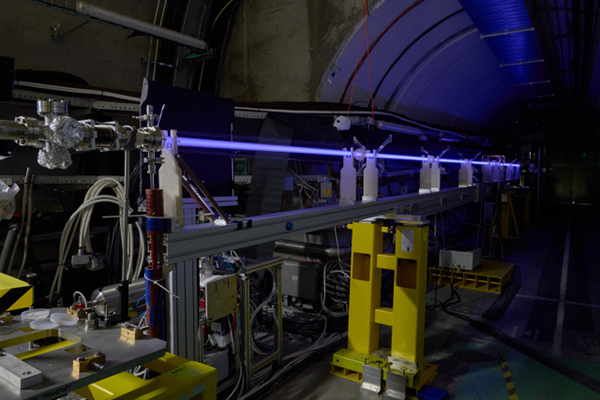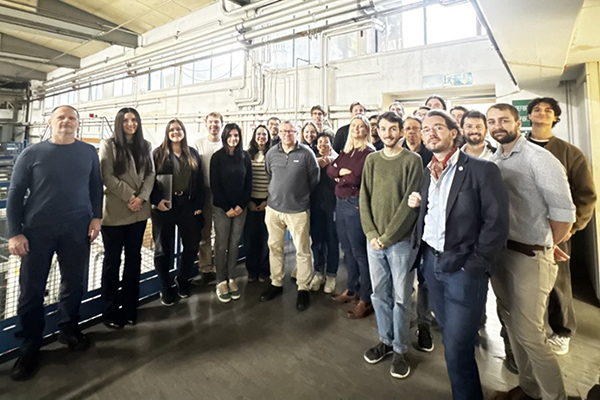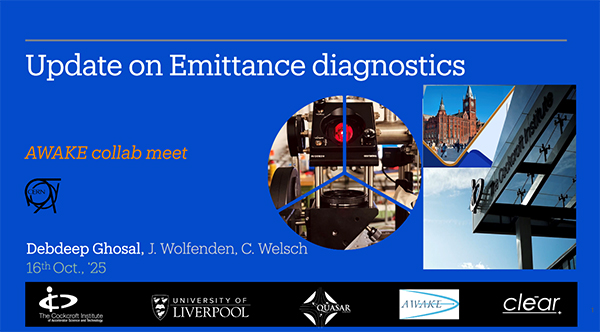QUASAR Group contributes to 2025 AWAKE collaboration meeting at CERN

The Advanced proton-driven plasma Wakefield acceleration experiment (AWAKE) project held its 2025 collaboration meeting at CERN from 15th to 17th October. This gave QUASAR Dr Debdeep Ghosal the opportunity to present the Group’s progress in beam diagnostics R&D.
The three-day event was organized into sub-sessions covering different aspects of Run 2b, experimental results, simulation updates related to the upcoming Run 2c, and discussions about future plans. This was complemented by status and summary reports from the Collaboration Board and publication committee.

Participants of the 2025 AWAKE collaboration meeting at CERN. (credit: AWAKE)
AWAKE is an international scientific collaboration made up of 23 institutes and involving almost 100 researchers. The UK has been making major contributions to the project over the years, with up to seven institutions involved. The University of Liverpool has been a key partner through the QUASAR Group for almost a decade.
AWAKE investigates the use of plasma wakefields driven by a proton bunch to accelerate electrons to multi-GeV energies in a much shorter distance than that required by conventional accelerators. The AWAKE concept was demonstrated for the first time in 2018.
Since then, the experiment has achieved significant milestones, including the successful acceleration of electrons to GeV scale in just ~10 metres of plasma. The last phase of the Run 2b, which started in 2021, successfully carried out studies into beam diagnostics, plasma cell development, and electron injection systems. Run 2c and 2d will aim to further upscale and better understand this innovative technique, paving the way for particle physics applications in the early 2030s.
Dr Edda Gschwendtner, AWAKE project leader, welcomed attendees to the meeting on Wednesday with an overview presentation. This was followed by a talk by Dr Patric Muggli, AWAKE spokesperson, who provided an overview of the project's current status and upcoming physics and diagnostic integration plans.
The remaining talks of the day focused on the measurement of plasma density, micro bunch behaviour, and plasma self-modulation. A tutorial by Marlene Turner from CERN on the basics of plasma wakefield acceleration concluded the day.

Dr Debdeep Ghosal presented a talk on the QUASAR Group’s research into emittance diagnostics.
The next day primarily centered around the results and studies from Run 2b and simulation work. Dr Ghosal presented an update on the University of Liverpool’s crucial work on emittance diagnostics and future integration plans aiming for the AWAKE Run 2c.
The final day of the meeting was dedicated to discussions on the planning, schedules, and milestones for Run 2c.
More information and all talk can be found on the event website: https://indico.cern.ch/event/1593074/